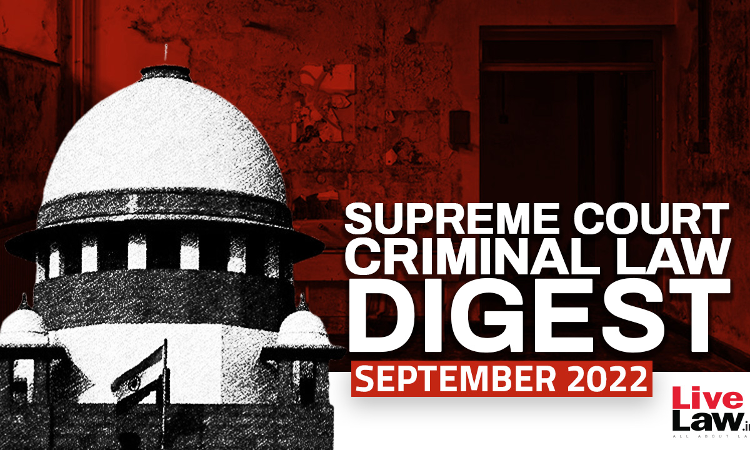Next Story
10 Oct 2022 9:09 AM IST
Bail - Post-conviction bail – All persons who have completed 10 years of sentence and appeal is not in proximity of hearing with no extenuating circumstances should be enlarged on bail. Sonadhar v. State of Chhattisgarh, 2022 LiveLaw (SC) 788 Bonded Labour System (Abolition) Act, 1976; Sections 16-17- For attracting the provision of Section 16 of the Act, the prosecution...

